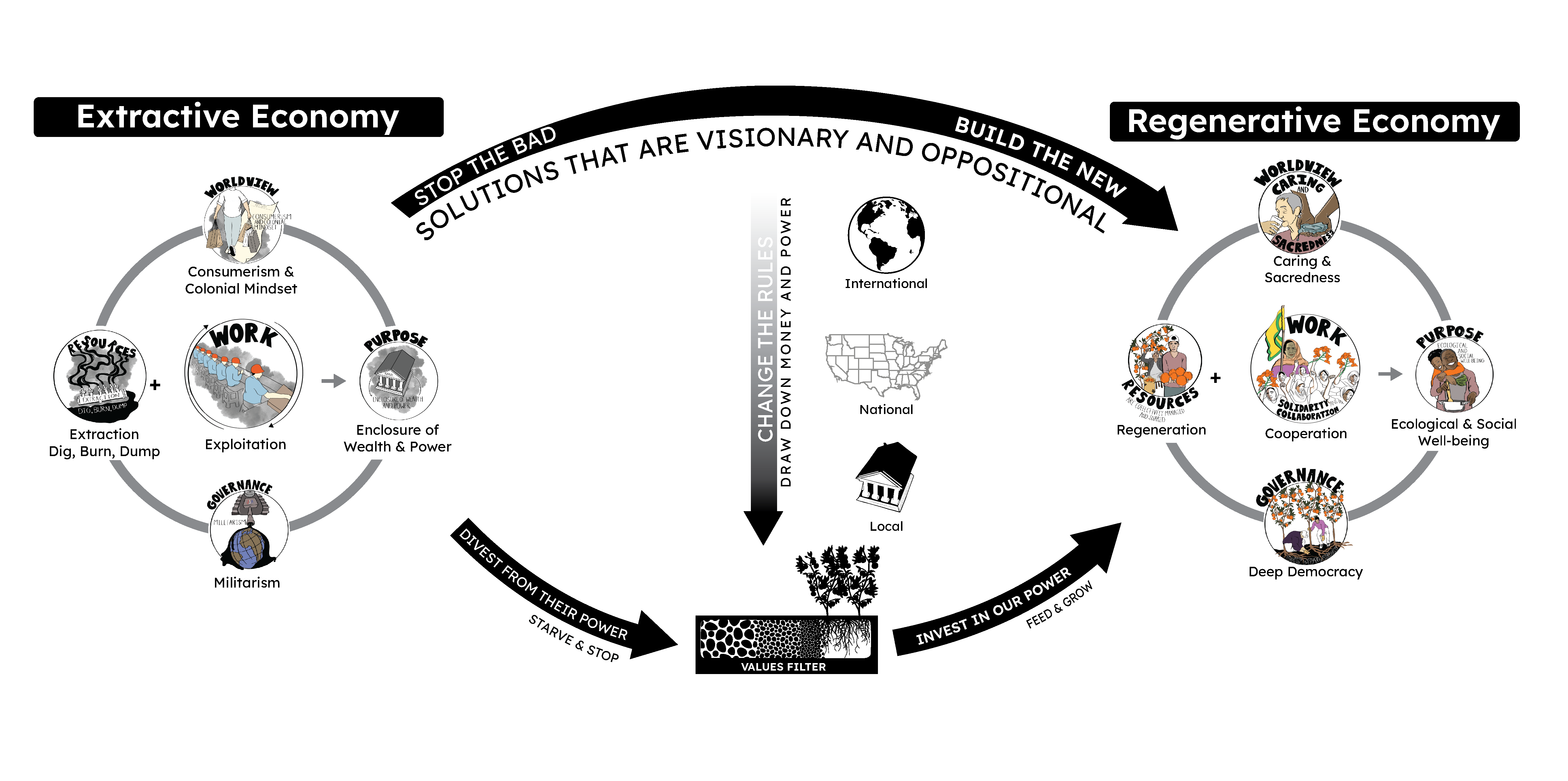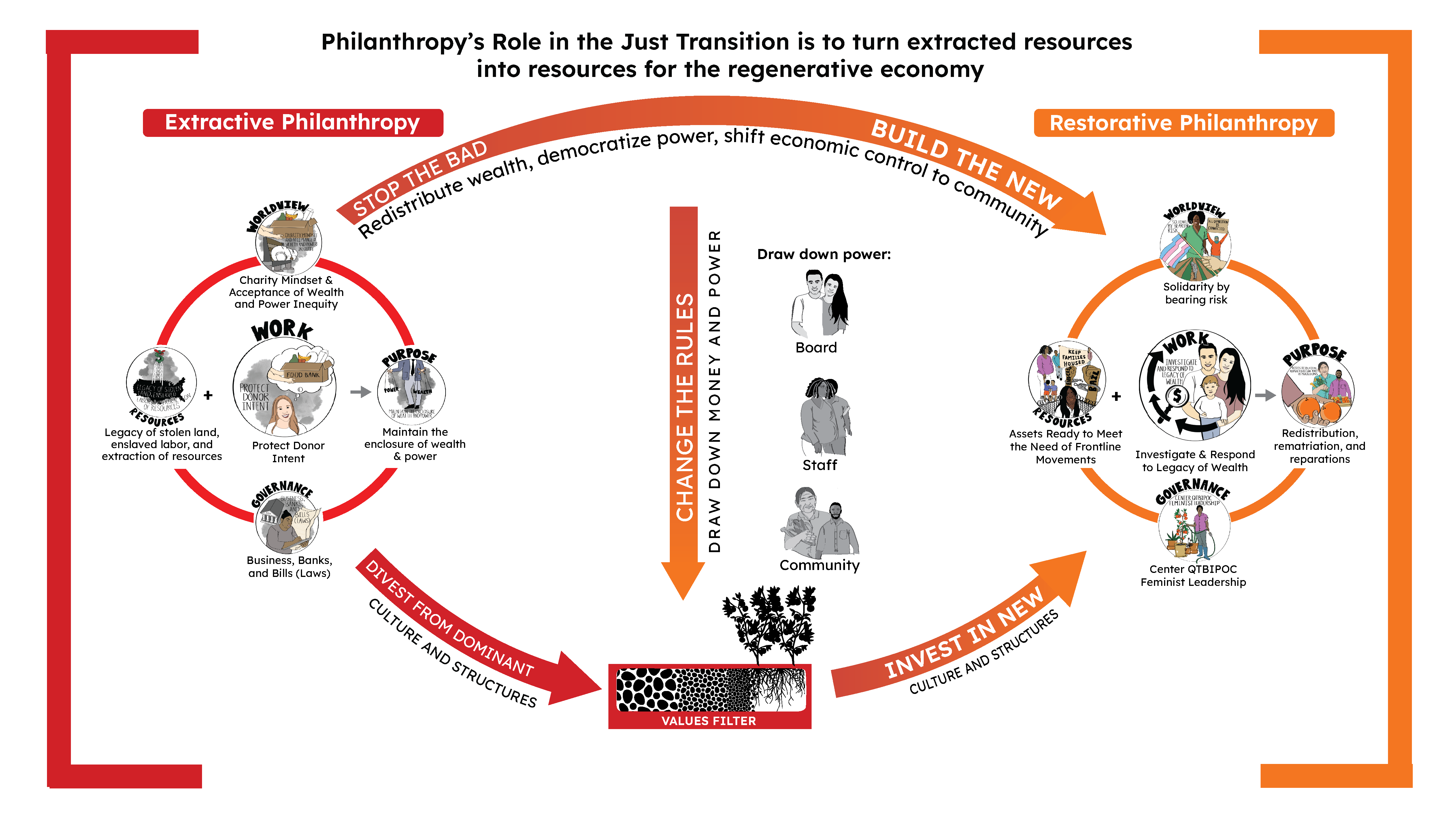A Just Transition for Philanthropy: our 100 year vision
Like all other forms of wealth in the U.S., philanthropic wealth can be traced back to industries that relied on economic practices of extraction and exploitation, such as the theft of Indigenous land and genocide of Indigenous peoples, the kidnapping and enslavement of millions of African people, the systemic undervaluing of women’s work, and the destruction of natural systems and the webs of life.
Because philanthropic wealth comes from these historic (and current) practices, we must recognize that grants alone, which amount to less than 5% of financial assets held by most foundations, are insufficient to eradicate the harm these economic practices have caused.
Furthermore, because our world’s most pressing issues cannot be resolved by either investment or grantmaking practices that reinforce the most harmful aspects of our extractive economy, we believe that foundations must deploy ALL of their resources to repair the harms that have been done and to accelerate a Just Transition toward a new economic system.
Just Transition is a vision-led, unifying, and place-based set of principles, processes, and practices that build economic and political power to shift from an extractive economy to a regenerative economy (Climate Justice Alliance).
Diagram adapted from Climate Justice Alliance. Artwork by Taslim van Hattum.
As stewards of accumulated wealth, philanthropy’s role in a Just Transition is to turn extracted resources into resources for the regenerative economy by redistributing wealth, democratizing power and shifting economic control to BIPOC and working class communities who have been most harmed by extraction and exploitation.
This is our 100-year vision of philanthropic transformation, as articulated in Resonance: A Just Transition Guide for Philanthropic Transformation.

Long-held worldviews about people’s relationship to capital and consumption foster our societal perspective on charity, investments, legacy, and risk. Individuals are encouraged to accumulate capital and to give to charitable causes like direct services, that perpetuate a dependency on the ability of a privileged few to give.
In line with this worldview, the way in which philanthropic wealth is accumulated, managed, and distributed (i.e. via top-down grantmaking or investments in for-profit companies that cause social, economic, and environmental devastation) exacerbates injustice rather than alleviates it.
The invitation to philanthropy is to reimagine how to take an active role in building a just and thriving world. Doing so requires creating intentional philanthropic practices derived from the principles of Just Transition. Recognizing that many of philanthropy’s current practices are reflective of an extractive economy, we must bring them to an end while beginning to use practices that embrace the responsive and reciprocal relationships of a restorative and regenerative economy.
As funder organizers committed to a practice of building relationships and leadership to shift power, structures and cultures within philanthropy, the Justice Funders team is as committed as ever to supporting a Just Transition in philanthropy.
We invite you to join us on a journey toward this vision.
Not sure where to begin? Here are some starting points:
- Subscribe to our email list
- Follow us on LinkedIn, Instagram and Medium
- Become a member of the Justice Funders Network
- Participate in the Fundamentals training series
- Build your capacity to become funder organizer through the Harmony Initiative